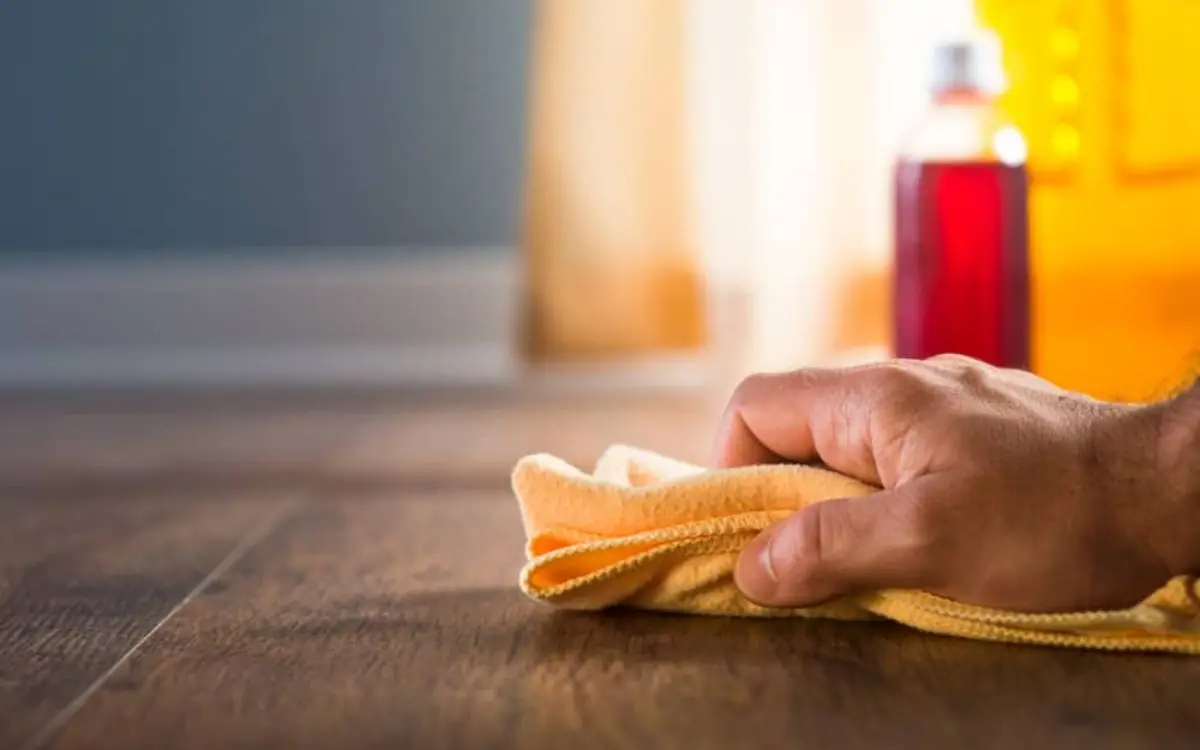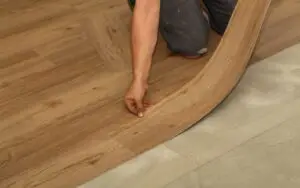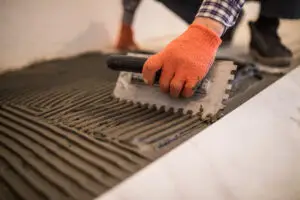Understanding Stone Tile Cleaning
Types of Stone Tile and Their Cleaning Needs
Granite
Granite is a relatively low-maintenance stone tile, but it still requires regular cleaning to keep it looking its best. Granite is a durable material, and it resists stains fairly well, but it is still porous, and needs to be sealed properly to prevent any stains from setting in. Professional installers can help you choose the best sealers for your specific needs.
Marble
Marble is a more delicate stone that requires gentle cleaning methods and pH-neutral cleaners to avoid etching and scratching the surface. Because marble is more porous, it is also more prone to staining, which means any spills should be cleaned up as quickly as possible. It is also essential to use the proper cleaning products, and professional installers can always provide a list of recommendations.
Limestone
Limestone is a porous stone that is prone to staining, and is more sensitive to acidic cleaners. It requires regular sealing, and gentle cleaning methods, to maintain its appearance. It is also important to avoid using abrasive cleaners, which can scratch the surface. When in doubt, you should always seek the advice of a professional installer, who can help you choose the right products, and techniques.
Travertine
Travertine, with its unique textured surface, can trap dirt and debris, which makes it require more frequent cleaning. Because of its porous nature, it also requires regular sealing to prevent staining, and also to keep it protected from moisture. Professional installers will always be available to answer any of your questions about cleaning, and maintaining your travertine floors.
Slate
Slate is a relatively easy to clean stone, due to its natural slip-resistant surface. It is important to regularly sweep and mop the floors, and it may also be necessary to seal it periodically to prevent staining. When cleaning slate, you should also avoid using any harsh chemicals or abrasive cleaners. Professional installers are very familiar with all of these types of floors, and can always offer advice and cleaning tips to keep your floors looking their best.
What Makes Stone Tile Cleaning Different
Porosity
The porosity of stone tile is one of the main reasons why it requires specific cleaning methods. Porous stones, such as marble and limestone, can easily absorb liquids, which will lead to staining, and also the growth of mold and mildew. It is very important to protect porous stones with a quality sealer, and professional installers are often experts in this area.
Sensitivity to Chemicals
Many types of stone are sensitive to chemicals, such as acids, and abrasive cleaners. These types of chemicals can damage the surface of the stone, causing etching, scratching, and discoloration. It is always essential to only use cleaning products that are specifically designed for natural stone, to protect the beauty, and integrity of the stone. A professional installer will often provide you with a list of approved cleaning products.
Texture
The texture of the stone can also affect the way it is cleaned. Textured surfaces can often trap dirt and debris, which may make it more difficult to remove. It is often useful to use a brush, or a mop, to clean textured stone floors, and it is also very important to vacuum the floors, to remove any loose dirt, or debris, before mopping.
Effective Stone Tile Cleaning Methods
Daily Cleaning
Sweeping and Vacuuming
Regular sweeping and vacuuming are essential for removing dirt, dust, and debris, from stone tile floors. It is very important to use a soft broom, or a vacuum with a brush attachment, to avoid scratching the surface. Removing loose dirt and debris from your floors, on a regular basis, will help to prevent any stains, or damage, over time.
Damp Mopping
Damp mopping is a great way to clean stone tile floors and remove any dirt or grime that has built up over time. It is essential to use a pH-neutral cleaner, and a clean mop. You should also avoid using too much water, as excess water can seep into the grout, and lead to mold and mildew.
Deep Cleaning
Identifying Stains
Identifying stains promptly is essential for effective stone tile cleaning. Different types of stains require different cleaning methods, so it is important to know what caused the stain, before you attempt to clean it. For example, oil-based stains will often require a different approach than water-based stains. A professional installer can often help you identify the best ways to remove stains on your specific floors.
Safe Cleaning Solutions
When deep cleaning stone tile, it is essential to use safe cleaning solutions, that are specifically designed for natural stone. It is also important to avoid using harsh chemicals, or abrasive cleaners, as these can damage the surface of the stone. In most cases, a mild dish soap, and warm water, can be used for most types of stains and spills.
Professional Cleaning Options
For stubborn stains, or for a more thorough cleaning, you may want to consider hiring a professional stone tile cleaning service. These services have specialized equipment, and also use professional-grade cleaning solutions, that can remove even the most difficult stains, without damaging the stone. These professional services are also often backed by a warranty, which provides added protection, and peace of mind.
Maintenance Tips for Easy Cleaning
Sealing Stone Tile
Importance of Sealing
Sealing your stone tile is one of the best ways to protect it from stains, moisture, and other types of damage. Sealers will create a protective barrier on the surface of the stone, that prevents liquids from seeping into the pores. This will help to make cleaning easier, and will also extend the life of your floors.
How Often to Seal
The frequency with which you seal your stone tile will depend on the type of stone, and the amount of traffic it receives. Softer stones, such as marble and limestone, will require sealing more often than harder stones, such as granite, and slate. As a general rule, it is best to seal your floors every 1-3 years, or as recommended by a professional installer.
Protecting Stone Tile
Using Rugs and Mats
Using rugs and mats in high-traffic areas, can help to protect your stone tile floors from scratches, dirt, and debris. Place rugs at entrances, and in areas where there is a lot of foot traffic, such as hallways, and kitchens. This simple step can greatly reduce the amount of wear and tear on your floors, and will help to keep them looking their best for many years to come.
Avoiding Abrasive Cleaners
You should always avoid using abrasive cleaners, on stone tile floors, as these can scratch, and damage the surface. Abrasive cleaners will remove the protective layer from your floors, and will also make them more prone to staining, and moisture damage. A professional installer can always recommend the best types of products for your stone floors.
DIY vs Professional Stone Tile Cleaning
Challenges of DIY Cleaning
Potential for Damage
One of the biggest challenges with DIY stone tile cleaning, is the potential for damage, if you do not use the correct products, and techniques. Using harsh chemicals, or abrasive cleaners, can damage the surface of the stone, and cause permanent discoloration, scratching, or etching. Professional installers are always aware of these issues, and are trained to use only the safest, and most effective cleaning methods.
Time and Effort
DIY stone tile cleaning can be time-consuming and labor-intensive, especially if you have a large area to clean, or if you are dealing with stubborn stains. It often requires kneeling, scrubbing, and wiping, and it can also be very difficult to achieve a streak-free finish.
Benefits of Professional Cleaning
Expertise and Specialized Equipment
Professional stone tile cleaning services have the expertise, and specialized equipment, needed to clean your floors thoroughly, and safely. They have a lot of experience working with different types of stone, and they will always be able to choose the correct methods, and products, for your specific needs. They can also often remove stains that would be impossible to remove with DIY cleaning methods.
Long-Term Protection
Professional cleaning services can provide long-term protection, for your stone tile floors, and can also help to extend their lifespan. They can apply sealers, and protective coatings, that will make your floors more resistant to scratches, stains, and moisture, and can also provide tips and recommendations on the best way to keep your floors looking their best.
Case Studies: Cleaning Success
Example of Well-Maintained Stone
A homeowner hired a professional service to install and maintain their marble floors. The installer used all of the proper installation techniques, and cleaning products, which kept the marble looking great for many years. The professional installer also performed all of the necessary maintenance steps, such as sealing, which extended the life of the floors.
Example of Damage from Improper Cleaning
Another homeowner attempted to clean their limestone floors themselves, and used the wrong types of cleaning products, which caused etching, and discoloration. The limestone was ruined, and it had to be completely replaced by a professional installer. This type of problem is easily avoided by simply hiring a professional to perform your cleaning and maintenance, or by getting recommendations from a professional, on what steps you should take, and what products you should use.
FAQs & Answers
Stone tile flooring can be slightly more challenging to clean compared to some other types of flooring, such as vinyl or laminate, as it often requires specific cleaning products and techniques to avoid damage. However, with proper knowledge and the right tools, stone tile can be easy to maintain. Professional stone flooring services offer cleaning and sealing, and will always ensure that your floors look their best. They will also provide you with a list of approved products, and techniques, to keep your floors looking great between professional cleanings.
The key differences in cleaning requirements for different types of stone tile mainly depend on their porosity, and sensitivity to chemicals. Marble and limestone are more porous and require pH-neutral cleaners to prevent etching and staining, while granite is less porous and more resistant to chemicals. Professional cleaning services understand these specific requirements and will always use the correct cleaning methods for each type of stone, to maximize its beauty and longevity.
When cleaning stone tile flooring, you should always avoid using acidic cleaners (such as vinegar or lemon juice), abrasive cleaners (such as scouring powders), and harsh chemicals (such as bleach or ammonia). These types of products can damage the surface of the stone, and lead to discoloration, etching, and other problems. Professional installers can often recommend the best types of cleaners for your floors, that will be both safe and effective.
The frequency with which you should seal your stone tile flooring will vary depending on the type of stone, and the amount of traffic it receives. As a general rule, you should seal your stone tile every 1-3 years, to protect it from stains, moisture, and other types of damage. Professional installers can assess your floors, and create a customized plan that fits within your specific needs.
Hiring a professional service for cleaning and maintaining stone tile floors offers several benefits. This includes using the right tools, and equipment, to clean the floors thoroughly, expertise in handling all types of stone, and prevention of any potential damage that might occur during the cleaning process. These types of services are also often backed by a warranty, which will provide you with added protection, and peace of mind.





